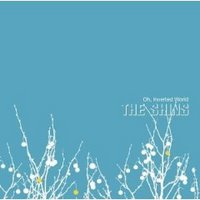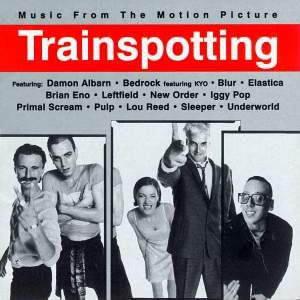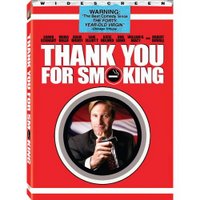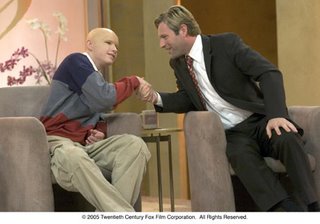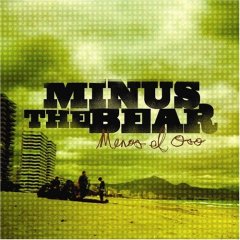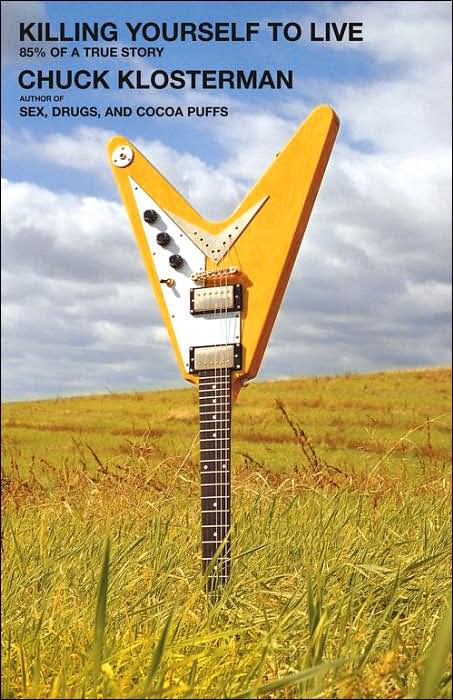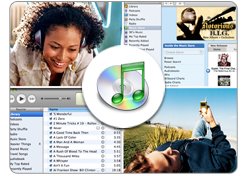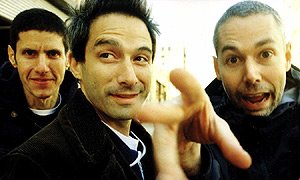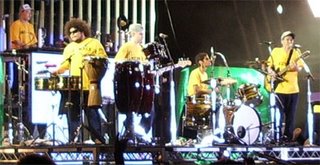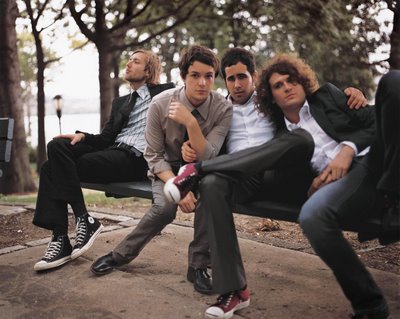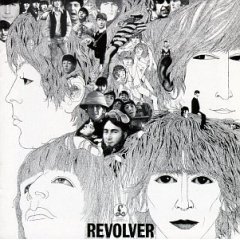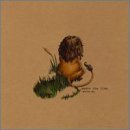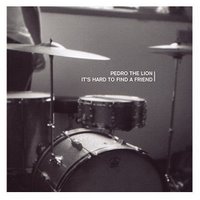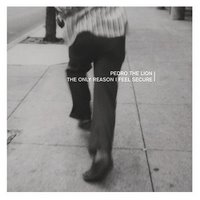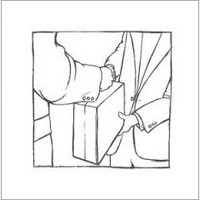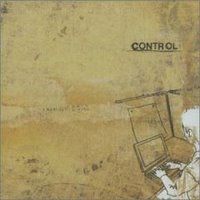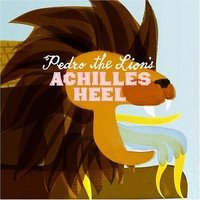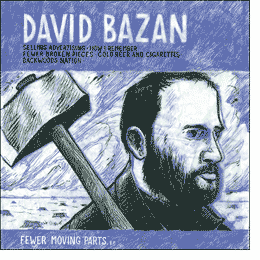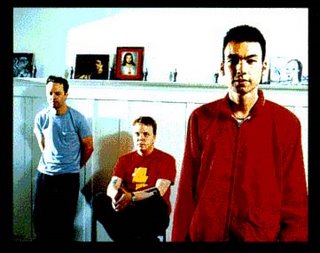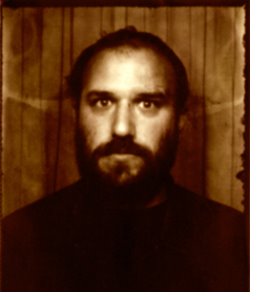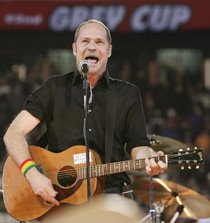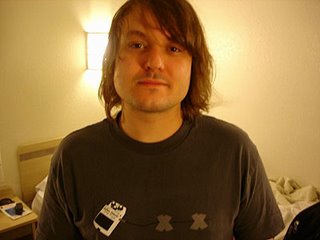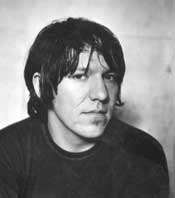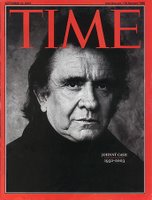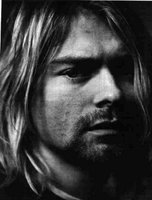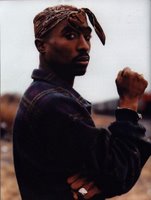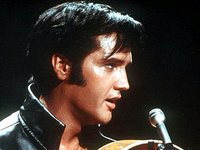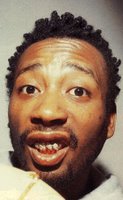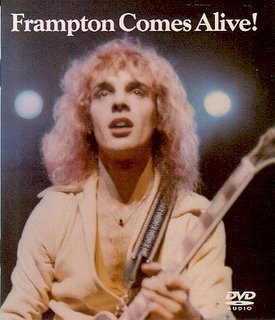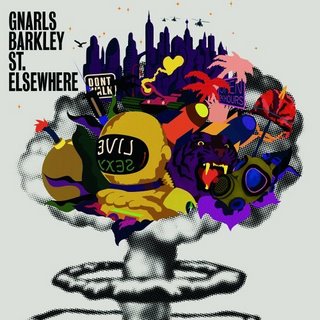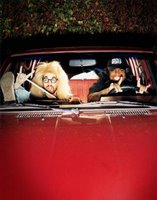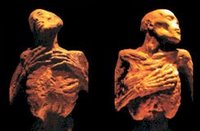Dear Diary,
The Cornerstone Festival has always been the Christian music festival that was more open to alternative music. They always had the underground stage that featured all the newest punk, hardcore and indie rock bands. And there are always dozens of bands set up at generator stages throughout the festival campgrounds. But main stage at Cornerstone was always about the mainstream rock acts. You know, like DC Talk and Third Day.
But this year all that changed. Main Stage at C-stone day two was invaded by a bunch of hardcore, screamo and heavy metal bands.
The evening started with the beauty and blister of As Cities Burn. These guys define screamo. It sounds like these screamo bands have been listening to U2 or something, because their spacey, melodic riffs were more than enough to fill the whole arena. Well, their intro song was a Sigur Ros song(!), so what should I expect?
The Chariot was up next with their destructive, spastic hardcore. I actually feared for the welfare of the band during their set. But it didn't compare to the brutality of Norma Jean.
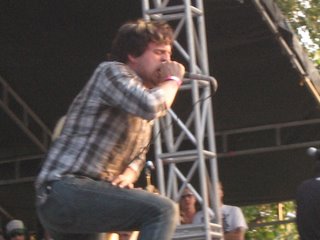
Norma Jean. Photo by Neil Beard.
The highlight of their set (and maybe of the whole evening) was when the lead singers of The Chariot and mewithoutYou came out to sing "Memphis Will Be Laid to Waste." What a scary and inspiring song!
Next up was Ozzfest regular As I Lay Dying. Straight up metal with some melodic vocals. Not bad. But something could compare to the set Underoath put on. Underoath is definitely the biggest emo/screamo/Warped Tour-ish band in the whole world right now, and deservingly so. They played several songs from their new album, Define the Great Line, which sounded perfectly constructed for arenas and mass consumption. And I do not mean that in a bad way. Also, it was way cool to see all of the cell phones out when Underoath played their OC-hit, "A Boy Brushed Red Living in Black and White."
But what was most exciting about this whole main stage spectacle was a man named Chad Johnson. Johnson is the A&R man for Tooth and Nail/Solid State Records (he used to own Takehold Records before it went under). He came out just before the Underoath set and...well...preached a sermon.
It was shocking and wonderful. Tooth and Nail was one of the first to preach the "We're Christians in a band, not a Christian band," thing. And I understand that position. Not everyone has the spiritual gift of preaching, and we shouldn't always expect our art, including music, to be a tool for ministry.
But Johnson and Underoath showed the crowd that music can be a way of sharing the most important thing in the world, the gospel of Jesus Christ, with lost people. (Whoops, I hope you don't accuse Alien Corpse of being a Christian site now! :) ) Johnson's message was short and about how we sin when we turn rock artists into idols. Convicting.
Underoath was unashamed about their faith, as well, and the fact of them being a Christian band, not Christians in a band. "We are here to represent Jesus Christ," said vocalist Spencer Chamberlain. Now, I don't now if they say things like that when their on tour with Killswitch Engage, but they said it last night, and it was amazing.
What do you think, Alien Corpse readers? Is it OK to use art as a tool for the gospel. I think my feelings on the subject are pretty clear. But I am interesting in discussing this hot topic.





